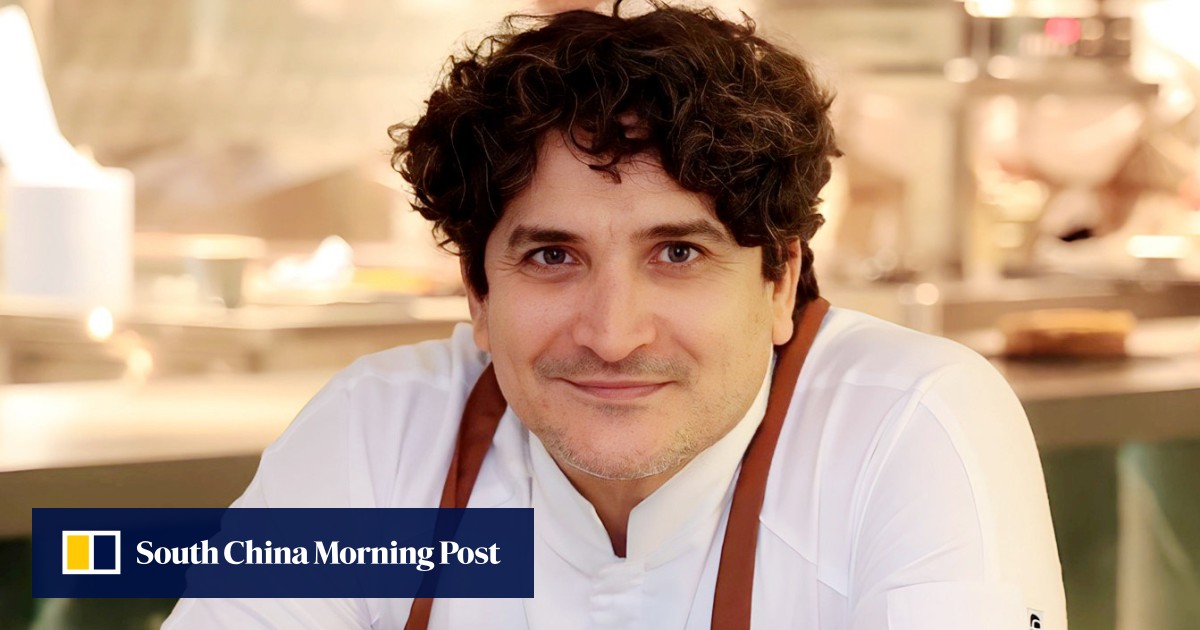“Being a chef is not about making a good dish, it’s much more than that,” he says, in his gentle and considered manner.
“I’m part of probably the last generation that learned to cook with our grandmothers and mothers at home. We learned not only the recipe, but also about seasonality, history and medicine.
“Now people cook far less at home, and the transmission between generations is lost. Chefs have visibility, we have a voice, so we need to take up the role of educating guests about food, seasonality and nature.”
Ranked: the 10 best restaurant openings in Hong Kong in 2023
Ranked: the 10 best restaurant openings in Hong Kong in 2023
“From a long list of products in a kitchen, hardly anyone knows who grew it, or how it was produced. We need to reconnect people with the importance of feeding ourselves and others,” he says.

His mission is to rewire the food system so that it is back in balance with the realities of nature. As a chef – although the term seems inadequate for both the breadth and gravity he lends the role – Colagreco supports locavorism, calling it “a must”.
“It’s really hard for me to imagine a restaurant that’s not local and seasonal. It’s a question of respect, both for our diners and for the land that hosts us,” he says.
In Hong Kong, Colagreco and his team – including executive chef Héloïse Fischbach – spent more than a month setting up their sourcing network for Plaisance (French for “leisure”) and his other two venues that occupy the three-storey building on Duddell Street, in Central: all-day bistro and bar P Lounge, and members-only Club Plaisance.

They now have a long list of local organic farms that supply them with vegetables, fruit, herbs and spices.
“Building a relationship with these farmers is such a pleasure; they know all about their ingredients and it’s not uncommon for them to give you a tip that will allow you to rethink and create the most perfect dish,” he says.
All shellfish, crabs and lobsters come from the local market, as does their black pig. “Our restaurants pay tribute to the marine universe, not only because I love this specific cuisine, but also because the ocean surrounds us and is an easy supplier to find,” he says.

Hong Kong may be surrounded by water, and has about 2,400 farms, but Colagreco’s commitment to sustainable farming and fishing meant that there were still challenges when it came to sourcing fresh produce.
“Of course it’s an effort, a real one, as we’re very committed to our core beliefs and therefore few suppliers match our requirements. It’s been a real process for our team. But in the end, it’s always worth it. Respecting our bodies, animals and nature is too important,” he says.
Opening a restaurant in Hong Kong has always been a dream for Colagreco, who says the city is one of the most vibrant in the world, with an “interesting and dynamic culinary scene”.

Plaisance is not his only recent opening in Asia – a region he says he has “always loved and looked up to”. He opened his first restaurant in Japan, Cycle, in Tokyo in October.
A modern French restaurant, it uses only produce sourced from Japan, much of it within an hour from the restaurant.
Sometimes young chefs, or even older chefs, forget that the ultimate goal is to work for the guest
“Our Japanese team is super organised,” says Colagreco, “and the produce is excellent. That’s what’s so important in Japanese culture – that everything must be as perfect as possible.”
The hotel occupies the architectural landmark of Britain’s former Old War Office, once home to Winston Churchill and an operations site for the British secret service in the 20th century.

There, he oversees his signature restaurant, which showcases his culinary innovation through a particular focus on the rich diversity of British vegetables.
He also has Mauro’s Table, a striking round room with private dining for up to 20 guests, and all-day dining restaurant Saison, which is housed in a glass-topped arcade and specialises in seasonal Mediterranean cuisine.
With his rapidly expanding empire of restaurants and responsibilities as a figurehead of the global sustainability movement, Colagreco is increasingly in the limelight. But he has, perhaps, always been set on a course for culinary stardom.
Paris’ Tour d’Argent reborn in time for 2024 Olympics, Notre Dame reopening
Paris’ Tour d’Argent reborn in time for 2024 Olympics, Notre Dame reopening
Leaving behind the small city of La Plata in Argentina – along with his plans to take over the family accountancy business – he moved to France to follow up his culinary training at the Lycée Hôtelier de La Rochelle cookery school.
His first internship, at the age of 23, was at Bernard Loiseau’s two-Michelin-star La Côte d’Or in Saulieu, eastern France. A week before the four-month internship was due to end, Loiseau offered him a job and Colagreco stayed at the restaurant until the acclaimed French chef committed suicide in 2003.
Colagreco moved to Paris, where he worked for Alain Passard at L’Arpège. At the time, Passard was changing his cooking philosophy, using less meat and more vegetables and fish – revolutionary in France – which influenced Colagreco’s own take on cooking.

He opened Mirazur in Menton in 2006, at the age of 29. Within a year he had earned a Michelin star and it was “like a bomb went off”.
People pay to eat at your restaurant and you must focus on them,” he says. “Sometimes young chefs, or even older chefs, forget that the ultimate goal is to work for the guest. They must focus on the choices that they, as chefs, can make when it comes to feeding people.”







